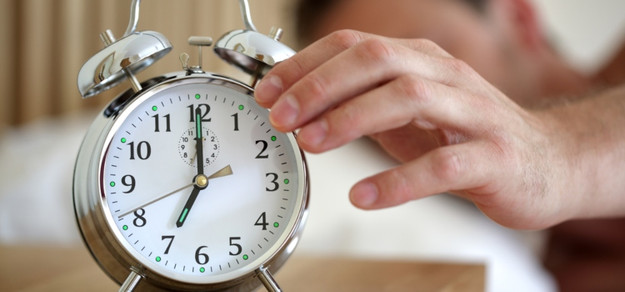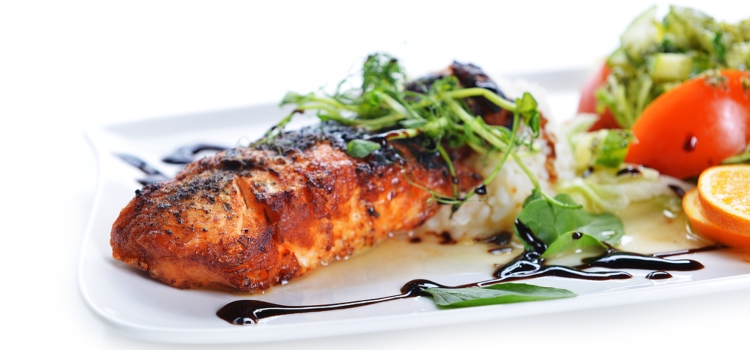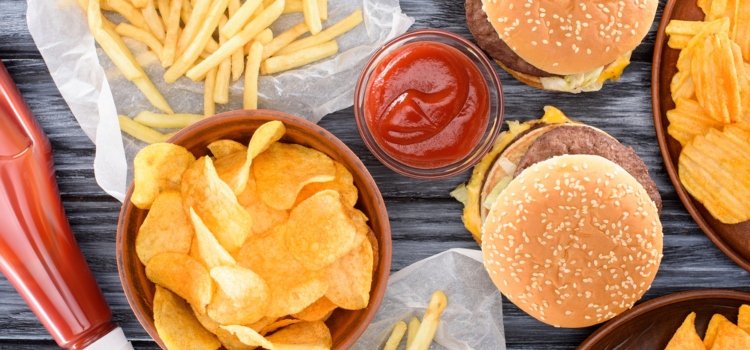The Relationship Between Diet and Sleep
27th Apr 2022

Diet and sleep are actually very closely related. If you’re having trouble falling asleep and staying asleep, it may have everything to do with your diet. A good diet can improve sleep quality, but there’s more to nutrition than just what you eat. How much you eat and when you consume your meals have a direct impact on your sleep. Let’s take a look at some good and bad foods for sleep, what time of day you should eat your bigger meals, and how long before bed you should chow down for the best sleep possible.
Sleep-friendly Foods
It’s no secret that sugar and caffeine should be avoided before bedtime. But what are some foods that actually invite a good night’s rest? If you find yourself craving a late night snack, consider the following options:
- Kiwi: Studies have found that kiwi improves “sleep onset, duration, and efficiency in adults with self-reported sleep disturbances”. Experts are still somewhat puzzled on why the fruit helps people fall and stay asleep, though it is most likely a result of the antioxidants found in kiwi.
- Fatty fish such as salmon and tuna have high levels of Omega 3s which have proven useful in reducing inflammation and inducing sleep. These healthy fats are involved in serotonin release, which helps to regulate the sleep-wake cycle.
- Nuts: Almonds and pistachios are a great source of the hormone melatonin which signals the body when it is time for bed.
- White rice: “White rice is high in carbohydrates, which are thought to promote a sense of fullness and restfulness”. This can decrease the amount of time it takes to fall asleep.

Foods to Avoid Before Bed
In your journey to improve your sleep, you might also be interested in the foods you want to avoid before you hit the hay:
- Heavy foods: Foods that are high in calories, dairy, fats, etc. are not your friend before bed. Save your burgers, pizza, and french fries for earlier in the day, if possible.
- Caffeine: It probably comes as no surprise that caffeine is the enemy of sleep, but be sure to avoid those sneaky caffeinated foods as well, such as chocolate and even some chewing gums.
- Spicy and acidic foods: Spicy and acidic foods are known to cause heartburn and acid reflux, which will lead to a night of disturbed sleep. Spicy foods also raise your body’s temperature which is counterproductive to sleep.

When to Eat for Best Sleep
When we sleep at night, we are resting our brains as well as our bodies. Food digestion interrupts your circadian rhythm (the sleep/wake cycle), and disrupts this important time of rest. Experts agree that you should ideally stop eating 3 hours before bedtime to allow your body time to digest and rest. The body also responds to consistency, so you should adhere to a similar meal times each day.

Meal Size and Sleep
It is best for sleep, weight loss, metabolism, and energy to eat your bigger meals earlier in the day and avoid high calorie meals at night. Large meals late at night increase the chance of heartburn as well, which is known to cause sleep disturbances.
Sleep and Diet
Sleep is one of the most valuable tools you have to live a full and energized life. Understanding the connections between sleep and nutrition is one of the best things you can do to fall asleep faster, sleep longer (and without interruptions), and wake up feeling refreshed.

- Most Popular
- Hard Outside, Soft Inside
- 2MM Thick
- Moderate / Heavy

- Most Durable
- Hard Materials
- 1.5MM Thick
- Heavy / Severe

- For Day Time Use
- Thin, Barely Visible
- 1MM Thick
- Light / Moderate

- For Clenching
- Flexible & Soft
- 1.5MM Thick
- Light / Moderate
